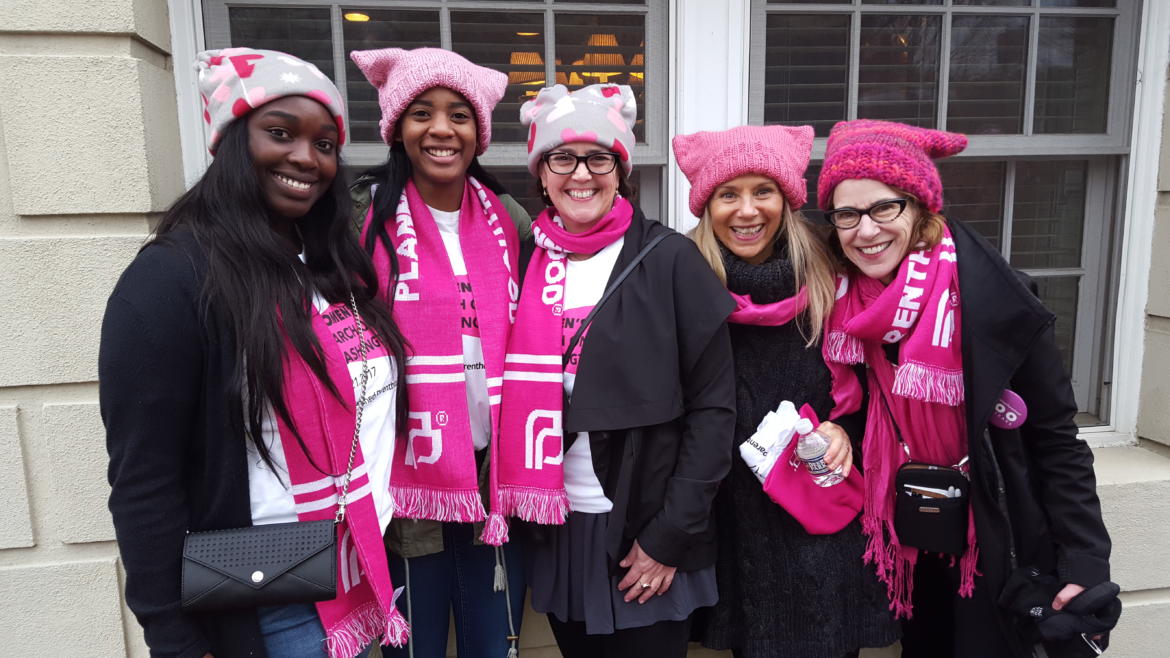I am just back from the Women’s March in Washington DC, glowing, energized, and trying to evaluate why the occasion felt so unprecedented. When I was younger I participated in many demonstrations, some in Boston, some in New Haven, some in Washington. I marched to support some things and to oppose others. I marched alongside thousands of other like-minded people. It was always empowering to try to get one’s voice heard, but never before did I experience the power I felt in Washington this past Saturday.
Part of the power came from the sheer number of people present. Over half a million people were there, all our bodies pressed together, cheek to jowl, back to belly, shoulder to shoulder. You could feel the heat of the other bodies; several times I found myself in unexpected moments of prolonged eye contact. I passed a group with Connecticut signs and when I asked a woman where in Connecticut, she said Newtown, and I instantly teared. Tears lurked near the surface all day long, easily provoked as we cheered, jeered, chanted, yelled, laughed. At some point everyone’s backs began aching. Some people needed to pee, others were hungry. But despite the discomfort, everyone was stunningly polite, nice really. We were there for an important reason that preempted hunger and backache, and we were united by some over-arching love, the kind of love for our fellow humans that is hard to feel when caught in the quotidian scrum, battling traffic and grocery store lines.
I think most of us were motivated to march because of our hatred for this new administration, its bigotry, its misogyny, its fascistic leanings. We know we shouldn’t respond to hatred with hatred, but it’s hard not to. And yet, while we were there to resist and protest, the love was far more palpable than the hatred. It got me to thinking about how, as humans, we are all familiar with feeling both love and hate. We can be provoked by circumstances to feel either, and if we’ve lived for a while we’ve seen many instances of love turning to hatred. But feelings rarely seem to move in the other direction, from hate to love.
As I go forward in resisting Trump, I want to prolong the awareness that I can love strangers. (I had a version of that same feeling when I adopted my son from a woman who was once a stranger, a woman I now adore). And I want to explore that movement from hate to love. What prompts it? What conditions does love need to thrive? Under the right circumstances aren’t we equipped to love anyone/everyone? (I am speaking not of eros, but of philia, brotherly love.) Perhaps these questions will spawn my next novel.

Add Comment